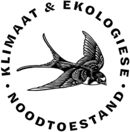Bibi Slippers, Nathan Trantraal na Engels vertaal

Alice Inggs is die Suid-Afrikaanse editor-at-large van Asymptote, ’n vooraanstaande (gratis) joernaal vir vertaalde wêreldliteratuur. “Our mission is simple: to unlock the literary treasures of the world.” Twee van hierdie literêre werke wat onlangs deur Alice vertaal is, is sekere gedigte van Bibi Slippers se Fotostaatmasjien en Nathan Trantraal se Chokers en Survivors. Dié taak het inspannende kreatiwiteit geëis.
Fotostaatmasjien is as Photostat Machine vertaal, waarop die vertaler die volgende nota’s, onder meer, byvoeg: “[The debut collection] frames poetry as a reproduction of reality. To duplicate a line from Jonathan Lethem’s essay ‘The Ecstasy of Influence: A Plagiarism,’ she interrogates the universe with scissors and a paste pot. For Bibi, the world is an open source and she samples liberally from it. The central theme of Bibi’s work is a great metaphor for translation too—the imperfect copy that is in itself a type of original. When translating poems from Fotostaatmasjien, I erred on the side of being literal (rather than figurative or symbolic) and worked to create something like an imprint or reprint of the originals, reproducing (as far as possible) structure, rhythm, rhyme, tone, and metaphor.”
Hier is haar Engelse gedigte sowel as die Afrikaanse gedigte.
Oor Nathan se gedigte sê sy die volgende: “Nathan Trantraal writes in the vernacular or ‘Kaaps’ dialect, a variant of Afrikaans spoken almost exclusively on the Cape Peninsula in the Western Cape province of South Africa. His poetry deals with ‘die liewe annie anne kant vannie kantlyn’, specifically the bleak social environment of the Cape Flats, an historically ‘Coloured area’ created by the apartheid government. Trantraal uses phonetic spelling, conveying how Kaaps is articulated (there is no official Kaaps dictionary and few published examples of Kaaps, especially in a literary context.) Certain words particular to Kaaps—absent from the ‘standard Afrikaans’ lexicon—are generally examples of local slang; terms derived or appropriated from other languages, including Malay and Arabic, and dating back to the origin of the dialect. In the English versions I use contractions, phonetic spelling, and colloquial grammar to translate the sound and attendant impression of social context contained in the original poems.”
Hier is die vertaalde gedigte en hier is die oorspronklike.
- Alice Inggs is mede-redakteur van die gedrukte Ons Klyntji, haar werk het ook al verskyn in Don’t Party, Monocle, Vice, Rolling Stone South Africa, Go! travel magazine, Spin, Your Live Music Guide en Mahala.
- Foto: Toast Coetzer
Eerste en oudste Afrikaanse tydskrif, sedert 1896
Divers, progressief en vars. Waardeer jy ’n stem soos Klyntji s’n? Het jy van Bibi Slippers, Nathan Trantraal na Engels vertaal gehou? Dan ondersteun ons. Donasies van lesers word gebruik om ons bedieningkostes te betaal: jou bydrae hou Klyntji aanlyn. Vriende van Klyntji word op hierdie bladsy erken. Elke bietjie help.






